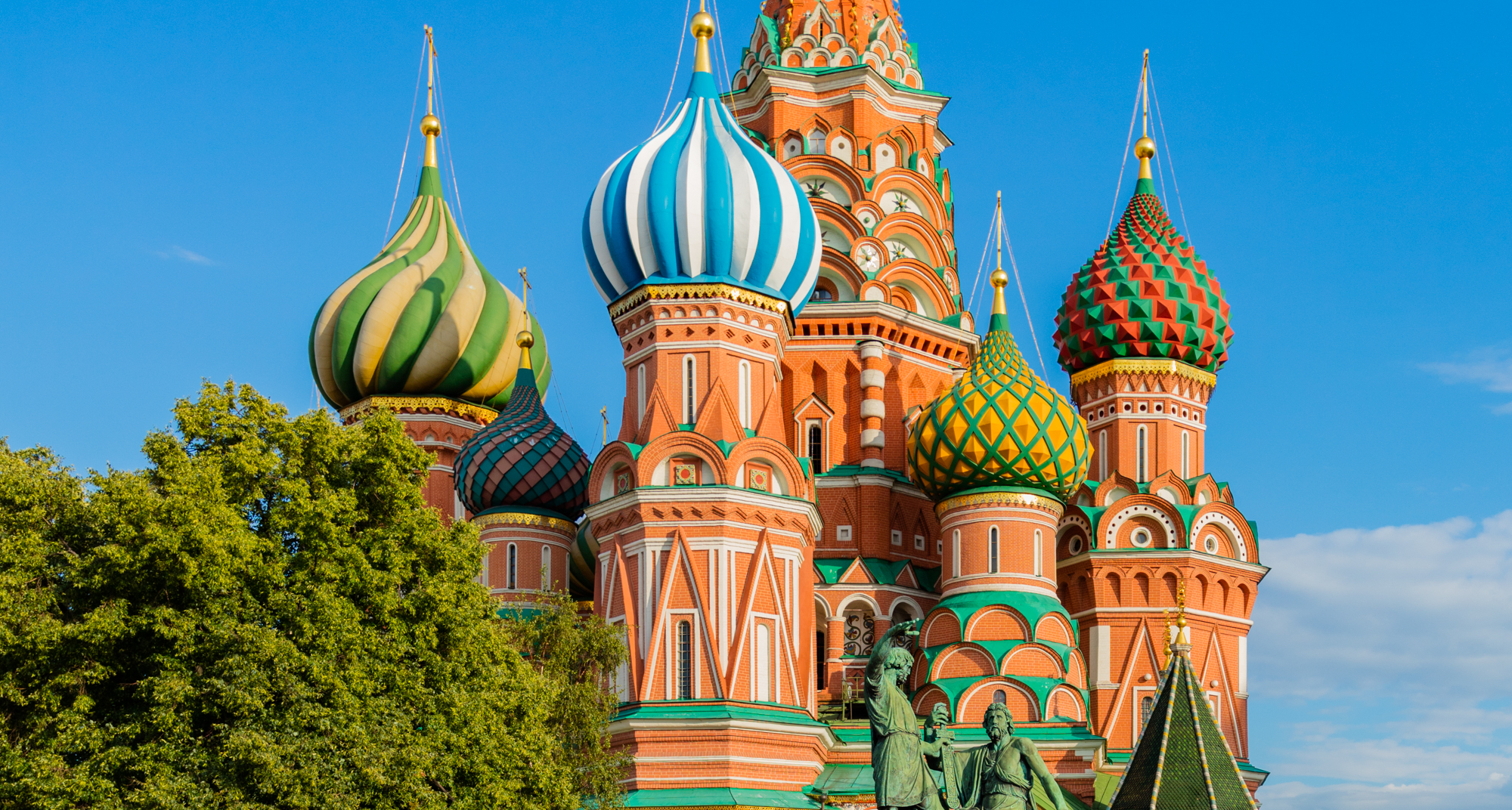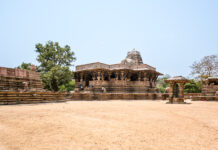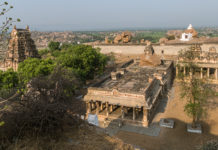Our Planet’s Landmarks Series #3

St. Basil’s Cathedral is located in Red Square, Moscow, Russia. Its actual name is the Cathedral of Vasily the Blessed.
Besides the above name, it is officially known as the Cathedral of the Intercession of the Most Holy Theotokos on the Moat or Pokrovsky Cathedral.

St Basil’s Cathedral Red Square Moscow Russia
Ivan the Terrible got it built between 1555 and 1561 CE. It was his way to commemorate the capture of Kazan and Astrakhan. During the 16th century, it was the city’s tallest building.
This colourful, onion-domed structure has today become an icon of Moscow. Interestingly, the building is no longer in use as a cathedral but is now a museum.
More Moscow? Click HERE

Architecturally, the building was conceived as a raging flame of a bonfire. It was originally built as eight side churches around a core. But over the centuries, a 10th structure got added to the original nine.
When it was being built, red bricks were a new construction material. The masons were so fascinated with bricks that they kept the brickwork exposed wherever they could. They essentially used bricks as a decorative material. The exception was wherever stone was used. There, they would cover it with brickwork pattern painted over stucco. Between the 17th and 19th centuries, it acquired its rainbow hues.

During some restoration of brickwork undertaken in 1954–55, the restorers made a surprise discovery. The massive brick walls concealed an internal wooden frame. It ran the entire height of the church. This discovery revealed the wooden frame was erected as a life-size model of the cathedral. It was then gradually encased in solid masonry.
Mistakenly called Kremlin because of its location, St Basil’s Cathedral forms a part of the UNESCO World Heritage Site that includes Red Square and Kremlin (It got inscribed on UNESCO list in 1990).
If you want more information on St Basil’s Cathedral, click HERE
An Aside
The bronze statue just outside the cathedral is the Monument to Minin and Pozharsky. This statue commemorates Prince Dmitry Pozharsky and Kuzma Minin. Together, they had gathered an all-Russian volunteer army that expelled the Polish-Lithuanian Commonwealth forces (commanded by King Sigismund III of Poland). The Time of Troubles in 1612 ended, thanks to their initiative.

This statue was erected in the early 19th century. It was originally in the centre of Red Square. But it was moved in 1936 to its present location as it was seen to be obstructing parades on the square.


















